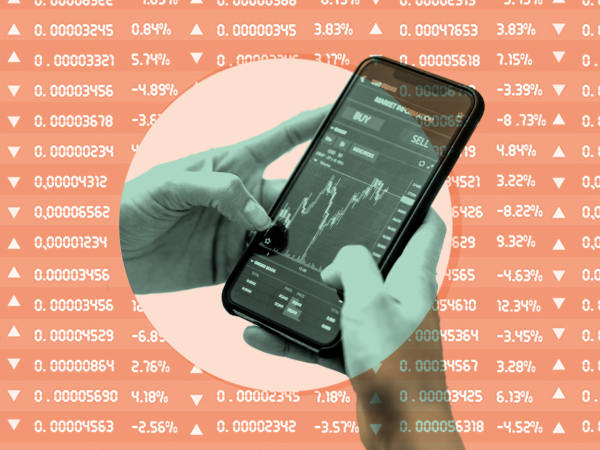There was a time when big drug companies delivered investors the enticing combination of earnings growth and income based on a steady stream of products protected by long-term exclusivity rights and enough cash flow to support generous shareholder returns. More recently, these companies have become riskier investments as high-profile drugs lose patents, competition for breakthrough treatments intensifies and cash flows come under pressure. GlaxoSmithKline (GSK) has fallen victim to these changing dynamics in recent years, exacerbated by a bribery scandal in China and a tail-off in top-line growth.
- Strong HIV division
- 40 new medicines in development
- Poor dividend cover
- Potential break-up may not create value
- Pricing pressure
- Clinical failure risks
A number of top City fund managers are now selling down their positions - Invesco's Mark Barnett has reportedly cut the stock from his funds over dividend fears and Fidelity's Michael Clark plans to reduce his position over the next 18 months. With GSK's status as a steady income play in doubt, we suggest following their lead.
Over the past two years, shares in GSK have yielded between 4.5 per cent and 6.5 per cent, making them a key port of call for income-hungry investors. At the moment, GSK's yield is the highest in the EU pharma sector and the seventh highest in the FTSE 100, which we believe is more a reflection of nervousness about the sustainability of the payout than a reflection of value.
The group has said dividends will stay flat until the end of the 2017 financial year at 80p and no promises have been made beyond that point. An 80p payment represents more than 100 per cent of the group's free cash flow and, based on forecasts from JPMorgan, will continue to do so at least until 2020 when the predicted free-cash-flow payout ratio is pencilled in at 104 per cent. For the current financial year, including a 20p special dividend, the payout ratio is a staggering 474 per cent of free cash flow.
There's therefore a lot of pressure on GSK to develop new medicines, specifically the 40 new drugs it says it has in the works. But a dedicated research and development (R&D) day for investors in New York on 3 November presented by chief executive Andrew Witty hasn't totally convinced the City. JPMorgan said the update contained "few surprises in terms of late-stage assets" and much of the increased disclosure related solely to early-stage drugs that "wouldn’t make a difference" until at least 2020. The broker also pointed out that Mr Witty had failed to fully describe the commercial potential of the product pipeline, which would have helped lift the share price. In pharmaceuticals optimism counts for a lot, and JPMorgan said it feels the main support for the shares is now the dividend rather than the pipeline.
GSK is going to have to come up with something stellar to ward off growing pricing pressure in the industry, too. This means a sharper focus on innovation (to develop game-changing medicines) without any material change in the R&D budget. That'll mean reallocating resources. Some investors suggest the best way to create value would be through a break-up, which may now be more likely in light of the agreed Pfizer-Allegen deal. In recent months, there's been huge praise for GSK's HIV venture - ViiV Healthcare - which it shares with Pfizer. The division has grown quickly thanks to the approval of a new drug, Tivicay, and plans to spin the division off through its own IPO were shelved last year.
However, we're not convinced by the logic of a break-up. Shareholders would be forced to choose between a pharma business with patent-protected products attached to a cash-hungry R&D division or a consumer-led business focused on volumes rather than margins. Neither is drastically compelling and there are questions to be answered in terms of managing those businesses or even Pfizer's role in ViiV. Any proceeds from a ViiV spin-off would likely be directed back into R&D, so investors couldn't bank on a cash windfall either.
| GLAXOSMITHKLINE (GSK) | ||||
|---|---|---|---|---|
| ORD PRICE: | 1,345p | MARKET VALUE: | £65.5bn | |
| TOUCH: | 1,344-1,345p | 12M HIGH / LOW: | 1,645p | 1,228p |
| FORWARD DIVIDEND YIELD: | 5.9% | FORWARD PE RATIO: | 16 | |
| NET ASSET VALUE: | 112p* | NET DEBT: | 114% | |
| Year to 31 Dec | Turnover (£bn) | Pre-tax profit (£bn)** | Earnings per share (p)** | Dividend per share (p)** |
|---|---|---|---|---|
| 2012 | 26.4 | 6.60 | 110 | 74.0 |
| 2013 | 25.6 | 5.06 | 106 | 78.0 |
| 2014 | 23.0 | 2.97 | 94.2 | 80.0 |
| 2015** | 24.0 | 12.5 | 73.8 | 80.0 |
| 2016** | 24.8 | 3.90 | 82.7 | 80.0 |
| % change | +3 | -69 | +12 | - |
Normal market size: 1,500 Matched bargain trading Beta: 0.89 *Includes intangible assets of £21.8bn, or 449p a share **Deutsche Bank forecasts, adjusted PTP and EPS figures, excludes 20p 2015 special dividend | ||||









